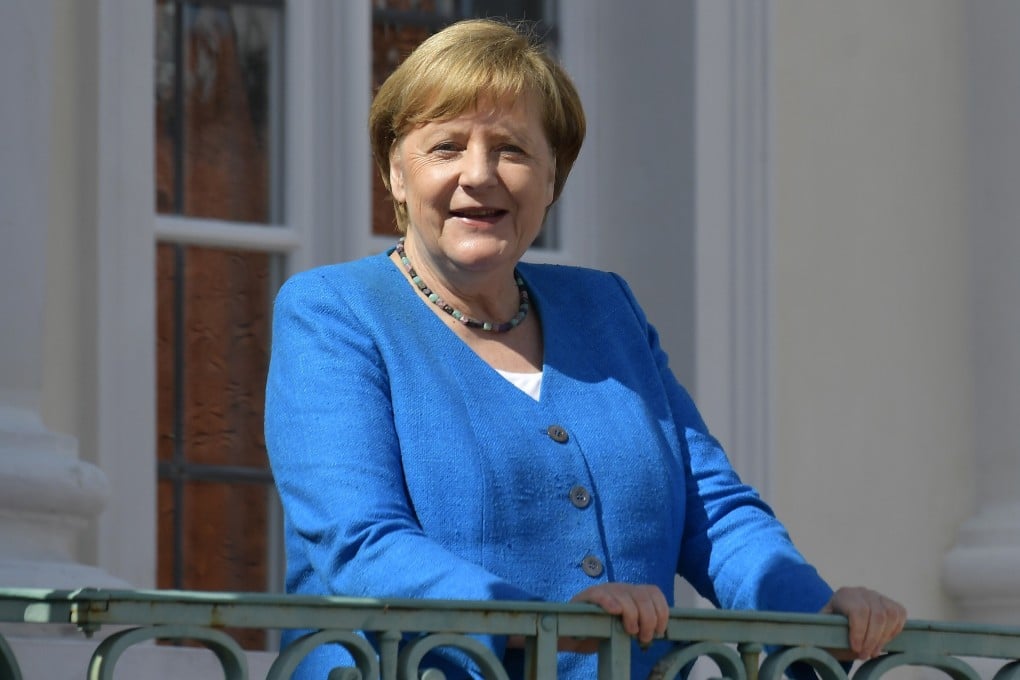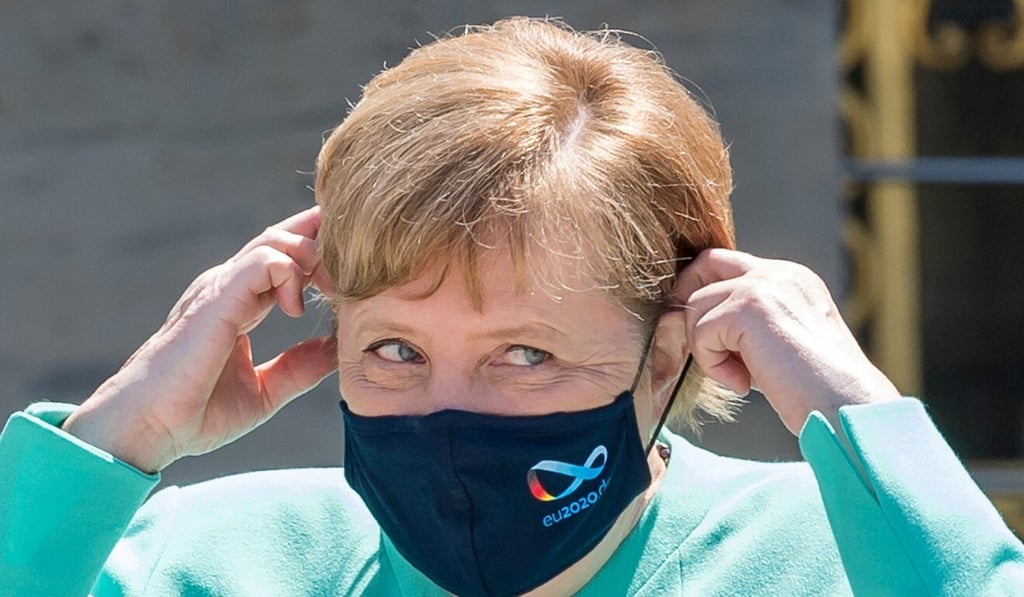Angela Merkel makes improbable comeback as Germany’s ‘crisis leader’
- German chancellor’s steady leadership in Covid-19 fight has helped boost her party in opinion polls
- Merkel has brushed off calls for her to reconsider running in 2021 for a record fifth term

Angela Merkel has been so successful in outfoxing and systematically eliminating any would-be challengers to her rule that there are not any obvious political heavyweights left in her conservative party with the clout or stature to step in to succeed her when she retires next year. No heir apparent. No one in the wings.
Germany has come through the coronavirus crisis in relatively good shape so far and much of the economy has reopened as the numbers of daily new infections and deaths have dwindled to manageable levels. But with Merkel, only the country’s eighth chancellor since 1949, set to become its first post-war leader to leave office under their own volition in 2021, a period of unprecedented lame-duck uncertainty and perhaps even power vacuum turmoil for her party loom.
“There’s no one else on the horizon because she managed to kill off anyone who could have been dangerous to her,” Thomas Jaeger, a political scientist at Cologne University, told South China Morning Post. He was referring to a dozen once-powerful men forced into the political wilderness by Merkel since she took control of the conservative party in 2000. “There’s no one left, only a bunch of political dwarves. But that’s a problem for the party, not Merkel.”

With the clock winding down on Merkel after 15 years at the helm of Europe’s most powerful country, the 66-year-old is once again at the height of her own power thanks to the sterling opinion polls she has earned for her Christian Democrats (CDU) – a reward for her widely praised leadership during the Covid-19 crisis.
Recent opinion polls show the conservatives at 37 per cent, up 11 points from March. That is nearly double the amount that the next closest party, the Greens at 20 per cent would win.